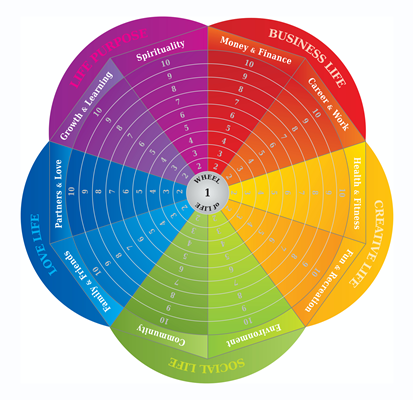
Stresses
In today’s fast-paced world, emotional eating has become a prevalent coping mechanism for dealing with the stresses and complexities of life. It is a complex behavior influenced by various factors, such as stress, sadness, boredom, anxiety, and even happiness. When we eat to soothe our emotions, we often reach for high-calorie, sugary, or fatty comfort foods that provide a temporary sense of relief. This kind of eating is often mindless, driven by the desire to numb or distract ourselves from negative emotions. While occasional emotional eating is a normal part of being human, excessive and habitual emotional eating can lead to a host of physical and emotional consequences. In this blog, we will explore the concept of emotional eating, its potential consequences, and five effective tips to minimize it, empowering us to develop healthier relationships with food and emotions.
Understanding Emotional Eating
Emotional eating is a multifaceted behavior that can stem from a range of emotional triggers. For many, stress is a common trigger for turning to food, as the act of eating can offer a temporary escape from the pressures of daily life. When we’re feeling sad or lonely, indulging in comfort foods may briefly alleviate those emotions, at least until the initial pleasure subsides. Boredom can also drive us to snack mindlessly, providing a sense of entertainment or distraction. On the other hand, feelings of anxiety or overwhelm may lead to emotional eating as a way to self-soothe and find comfort in familiar tastes.
The foods chosen during emotional eating tend to be high in sugar, fat, and calories. These foods trigger the release of “feel-good” neurotransmitters like dopamine, providing a momentary sense of pleasure and relief. However, this relief is often short-lived, and the negative emotions we were trying to escape from can return, leading to a cycle of emotional eating that can be challenging to break.
Consequences of Emotional Eating
While emotional eating may offer temporary relief, it can have significant repercussions on both physical and emotional well-being. Over time, excessive emotional eating can lead to weight gain and associated health issues such as obesity, heart disease, and diabetes. The guilt and shame that often follow emotional eating episodes can erode self-esteem and create a negative relationship with food.
Additionally, emotional eating does not address the underlying emotional triggers; it merely masks them temporarily. As a result, the original emotional issues remain unresolved, perpetuating the cycle of emotional eating as the go-to coping mechanism.
5 Effective Tips to Minimize Emotional Eating
Practice Mindful Eating
Mindful eating involves being fully present and aware during meals. Instead of eating on autopilot or in response to emotions, take the time to focus on the flavors, textures, and sensations of each bite. Before eating, pause to assess if you are genuinely hungry or if you are seeking comfort. If it’s emotional hunger, find alternative ways to cope with the emotions without turning to food. Mindful eating allows you to savor your meals and make conscious choices, helping you reduce emotional eating episodes.
Keep a Food Journal
Keeping a food journal can provide valuable insights into your eating patterns and emotional triggers. Record what you eat, when you eat, and how you feel before and after each meal or snack. Look for patterns and connections between your emotions and food choices. Understanding these patterns can help you identify specific triggers and work on finding healthier coping mechanisms.
Find Alternative Coping Mechanisms
Instead of turning to food to cope with emotions, discover alternative strategies to manage stress and emotional turmoil. Engage in activities that bring you joy, such as exercising, practicing yoga, meditating, or spending time in nature. These activities can help reduce stress, anxiety, and negative emotions, providing healthier outlets for emotional release.
Create a Balanced Meal Plan
Ensuring you have a balanced and nutritious meal plan can play a significant role in reducing emotional eating. When your body receives the essential nutrients it needs, it is less likely to crave unhealthy comfort foods. Include a variety of fruits, vegetables, lean proteins, whole grains, and healthy fats in your diet. Avoid restrictive diets, as they can lead to feelings of deprivation and trigger emotional eating episodes.
Practice Self-Compassion
Be kind to yourself throughout the process of minimizing emotional eating. Breaking old habits takes time, and setbacks are a normal part of the journey. Instead of being critical of yourself when emotional eating occurs, practice self-compassion and acknowledge that everyone faces challenges. Treat yourself with the same understanding and kindness you would offer to a friend going through a difficult time.
When you want to deal with emotional eating, a health coach can be a valuable resource and support system to help you navigate the complexities of your relationship with food and emotions. Here are some ways a health coach can assist you in addressing emotional eating:
Understanding Triggers
A health coach can work with you to identify the emotional triggers that lead to your emotional eating episodes. They will help you explore the root causes of your emotions, whether it’s stress, boredom, anxiety, loneliness, or other factors.
Setting Goals: Together
You and your health coach can set realistic and achievable goals to reduce emotional eating. These goals may involve incorporating healthier coping mechanisms, improving mindful eating practices, and gradually decreasing reliance on food as an emotional crutch.
Encouragement and Accountability
Dealing with emotional eating can be challenging, and setbacks may occur along the way. A health coach will provide ongoing encouragement and support to help you stay motivated and focused on your goals. They can hold you accountable for your actions and help you navigate through difficult moments.
Emotional Support
A health coach can be a non-judgmental and empathetic listener, providing a safe space for you to express your emotions and feelings surrounding your relationship with food. They can offer guidance and perspective on how to cope with challenging emotions effectively.
Celebrating Progress
Progress in overcoming emotional eating should be acknowledged and celebrated. A health coach will celebrate your achievements, no matter how small, and use positive reinforcement to motivate you to continue on your journey.
Referrals and Resources
If necessary, a health coach can refer you to other professionals such as therapists, counselors, or registered dietitians who can provide specialized support in dealing with emotional eating.
Remember that overcoming emotional eating is a process that requires patience and dedication. A health coach can be a valuable partner in this journey, offering guidance, support, and expertise to help you build healthier habits and improve your overall well-being.
Complex
Emotional eating is a complex behavior influenced by various emotional triggers. While it may offer temporary relief from negative emotions, it can lead to a range of physical and emotional consequences when left unchecked. By practicing mindful eating, keeping a food journal, finding alternative coping mechanisms, creating a balanced meal plan, and practicing self-compassion, we can minimize emotional eating and foster a healthier relationship with food and emotions. Remember, the journey to reducing emotional eating may not be smooth, but with patience, self-awareness, and dedication, positive changes are within reach, enabling us to live a happier and more balanced life.







